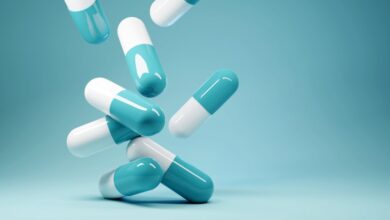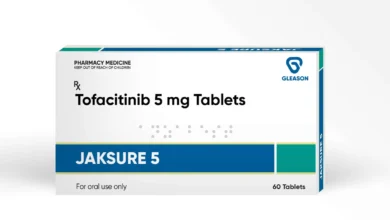Caffeine in Your Hydration? Exploring the Truth Behind Vitamin Water
Products on the beverage market that promise to improve general health, vitality, and hydration have proliferated in recent years. Among these, Vitamin Water has established a sizable following, frequently being promoted as a healthier substitute for energy drinks and conventional sodas. However, a common query is: Does Vitamin Water include caffeine, and if so, how does it impact your level of hydration? The purpose of this article is to explain vitamin water, examine its caffeine level, and discuss its wider health and hydration consequences.
The Development of Useful Drinks
Vitamin Water and other functional beverages have become increasingly popular as people become more health-conscious. These beverages offer additional health advantages from vitamins, minerals, and occasionally even caffeine in addition to pure hydration. There is no denying the attraction of a beverage that not only satisfies thirst but also gives you energy and vital minerals.
Created by Glacéau in 2000 and later purchased by Coca-Cola, Vitamin Water is a vitamin-fortified beverage that mixes water with different flavors, sweeteners, and extra nutrients. For consumers who are concerned about their health, Vitamin Water offers a vibrant selection of flavors, including “Power-C,” “Essential,” and “Crisp.”
Is There Any Caffeine in Vitamin Water?
In a nutshell, it depends. While caffeine is present in certain Vitamin water contain caffeine, it is not present in many. For instance, Vitamin Water Zero is the new name for the original, caffeine-free versions of the beverage. The caffeine concentration of the “Vitamin Water Energy” brand, however, is similar to that of soft drinks and is typically approximately 50 mg per 12-ounce serving.
For people who might be sensitive to caffeine or who want to watch their intake, this caffeine amount is important. To be aware of what you’re putting into your body, it is imperative that you read the product label.
Knowing Your Caffeine and Hydration Levels
A natural stimulant, caffeine can be found in a variety of plants, such as cacao pods, tea leaves, and coffee beans. It’s well known for improving alertness and lowering fatigue. But there is a lot of disagreement over the contribution of caffeine to hydration.
Caffeine was once believed to be a diuretic, which could cause dehydration and increased urine production. Recent studies, however, indicate that habitual users of caffeine may not experience a significant increase in dehydration from moderate use. Caffeine’s diuretic effect is frequently less pronounced in habitual users since the body can adjust to its consumption.
Furthermore, caffeine-containing liquids including tea, coffee, and even caffeinated soft drinks can help you stay hydrated overall. This implies that Vitamin Water can still be a hydrating choice if you like it with caffeine, especially if you drink it in moderation.
The Vitamin Water Nutrition Profile
Vitamin Water has many different vitamins and minerals in addition to caffeine. Vitamin C, B vitamins (including B3, B5, B6, and B12), and electrolytes (like potassium) are present in most tastes. Even though these extra nutrients have potential benefits, it’s important to take into account both their sources and the overall nutritional balance.
1. Minerals and Vitamins:
Vitamin Water’s vitamin content can improve general health, especially for people whose diets may not provide enough of certain nutrients. For instance, B vitamins are essential for energy metabolism, and vitamin C is critical for immune system function.
2. Sugar level:
The high sugar level of many Vitamin Water variations is one of its main drawbacks. Similar to sugar-filled sodas, regular versions can have up to 32 grams of sugar per bottle. Overindulgence in sugar is associated with a number of health problems, such as diabetes, heart disease, and obesity. For anyone watching how much sugar they consume, going with the zero-calorie varieties might be a better option.
3. Caloric Content:
Vitamin Water may have calories, mostly from sugar, depending on the flavor and variation. This is a crucial point to take into account if you’re eating it as part of a diet that is limited in calories.
Hydration: Essential Information
Hydration affects everything from physical performance to cognitive function, making it essential for general health. Although many people only associate hydration with drinking water, other drinks, such as Vitamin Water, can help you meet your daily fluid requirements.
But not every beverage is made equally. Water, which has no calories, sweets, or chemicals, is still the best option for staying hydrated. Water should be the main source of hydration for most people, especially when exercising or in hot conditions.
Keeping Your Drink Selections in Check
Balance is crucial when it comes to staying hydrated. The following advice may help you maintain ideal hydration levels while including Vitamin Water and other functional beverages in your diet:
1. Examine the labels:
Verify the nutritional data on beverage labels at all times. To help you make wise decisions, pay attention to the amount of sugar, calories, and caffeine.
2. The Key Is Moderation:
Use vitamin water sparingly if you like the way it tastes or if you want some extra health benefits. Think about switching it up with other low-calorie drinks or just plain water.
3. Think About Your Lifestyle:
You might need to resupply electrolytes and carbs if you exercise or lead an active lifestyle. Beverages such as Vitamin Water can be helpful in these situations. Plain water, however, usually suffices for daily hydration.
4. Pay Attention to Your Body:
Take note of your feelings after consuming various drinks. Lowering your intake of caffeinated drinks might be worthwhile if you experience pain or increased thirst after ingesting them.
In summary
Vitamin Water offers a special combination of vitamins, minerals, and, depending on the kind, caffeine. Drinking it carefully can make it a refreshing and healthy beverage, but it shouldn’t take the place of water as your main source of hydration. Making educated decisions requires an understanding of the nutritional profile, which includes sugar levels, caffeine content, and general health advantages.
Moderation and balance are vital, just like with any product. You may reap the benefits of vitamin water while making sure you adequately meet your hydration requirements by include a range of hydrating options in your diet.





